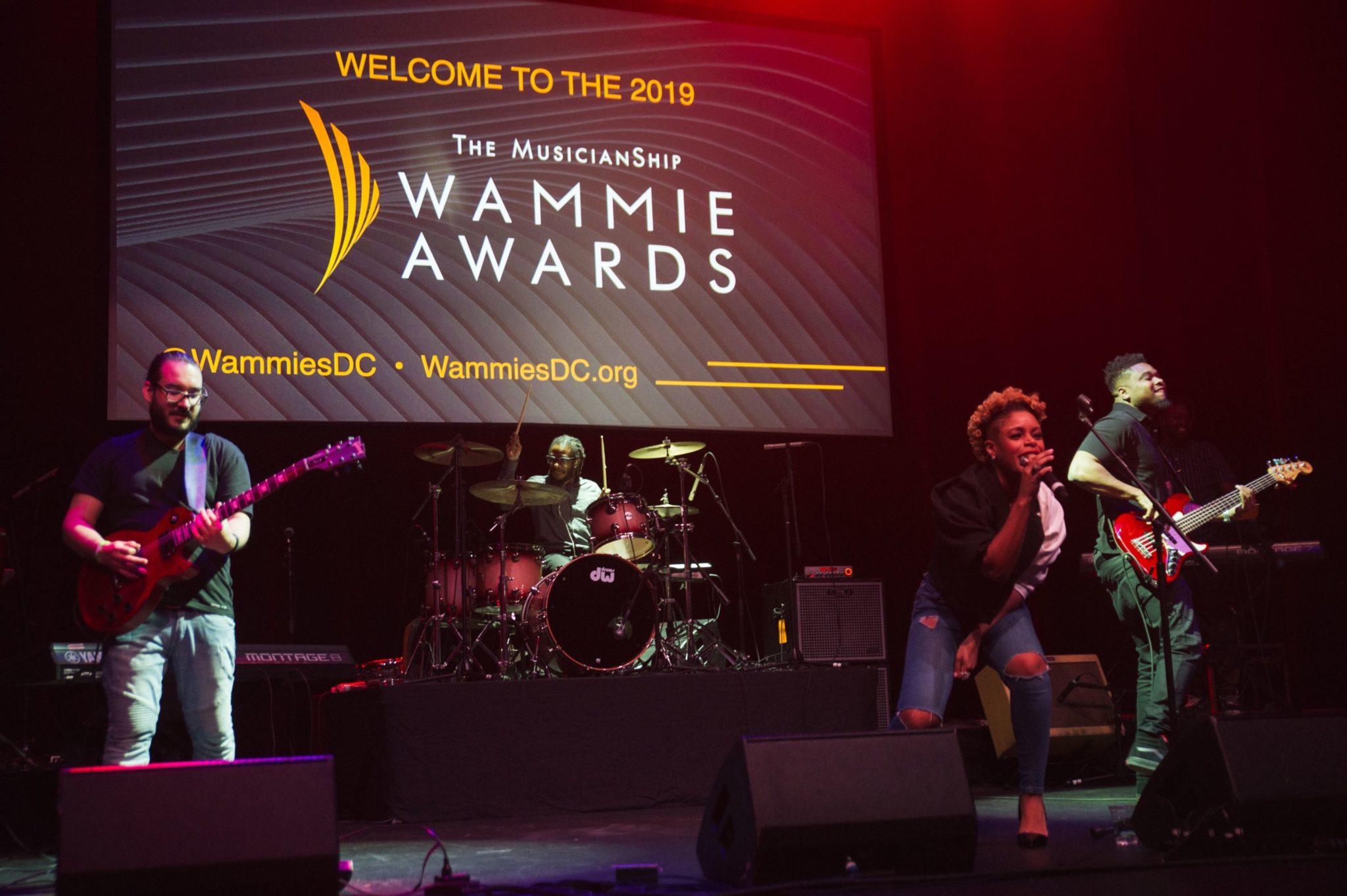When the Wammies relaunched last year, its new stewards at the MusicianShip, a non-profit music education organization, promised significant changes. After years of criticism and a two-year hiatus, the local-music awards show returned with a revamped system for nominations and voting and a goal to better reflect the variety in DC’s music scene. “I think there’s always room for improvement,” says Jeffrey Tribble Jr., the MusicianShip’s executive director. “We did try be inclusive in terms of ethnicity and gender and race and genre, of course.”
The non-profit Washington Area Music Association, or WAMA, began hosting the Wammies in 1985. The awards highlighted excellence in the local music community, featuring early winners like Emmylou Harris, Chuck Brown, and Mary Chapin Carpenter. But over time, the Wammies earned criticism from local musicians and media for giving awards to the same artists over and over and failing to adequately reflect the diversity of the city’s music scene. Some artists called into question the fairness of its nominations process. WAMA staged its last Wammies in 2016 and ceased operations in 2018, and the event was dormant until the MusicianShip, which also recently took took over DC’s annual Funk Parade, brought it back in 2019. Unlike WAMA, which was a membership organization, the MusicianShip opened nominations and voting to the public and enlisted a panel of around 60 judges, including journalists and industry insiders, to choose the winners from a set of finalists.
Stacey Williams, a former WAMA board member who has worked with the MusicianShip in an advisory role, saw WAMA’s “growing pains” up close and believes the new model has widened the field, without the $30 barrier to entry in the form of a membership fee. “Because it’s not membership driven, it’s become much more inclusive,” she says. “So we’ve gotten people from a cappella groups, we’ve gotten people from world-music groups. We’ve got a much more diverse number of candidates and genres.” (You can see this year’s list of finalists here.)
Last March, the MusicianShip hosted a Wammies weekend, featuring performances by electro-pop outfit Den-Mate, self-described “hood rock” group Black Alley, and R&B duo BOOMscat, among others. That Saturday, the MusicianShip hosted an all-day conference at Decades, featuring panels on subjects like DC music history, music law, and the basics of publishing, royalties, and copyright. The show also moved to the Lincoln Theatre after being held at the State Theatre for decades, and even with the new venue’s larger capacity, filled an estimated 85 percent of seats.
Mannywellz, who won both Best R&B Artist and Best Soul Artist in 2019, didn’t know much about the show before he was nominated, but he says that DMV musicians of all genres were well represented, from bluegrass and jazz to hip-hop. “I didn’t even know that many artists existed in the area or different types of artists existed in the area,” he says. “It was really cool to see that.”
As organizers prepare for another Wammies weekend, set for March 28 through 29 with performances by artists like rapper Innanet James and Grammy-nominated singer-songwriter Carolyn Malachi, there are still lingering questions: How will they keep voters engaged? And will the Wammies prove to be the launchpad for local artists that some of its stewards say it can be?
Chris Richards, the Washington Post‘s pop-music critic, thinks the new Wammies do feel more relevant to DC’s music scene. “When I was coming up, before I was writing about music and was just a musician in the scene in my early 20s, the Wammies felt like a house down the block that you never really walked past,” says Richards, once a member of Dischord band Q And Not U. Richards recalls that many local groups he and his friends listened to and cared about weren’t recognized by WAMA, and the ceremony didn’t speak to his generation. “So then to have this really dramatic reboot last year, now it feels very young and very fresh, and I think that’s really encouraging.”















